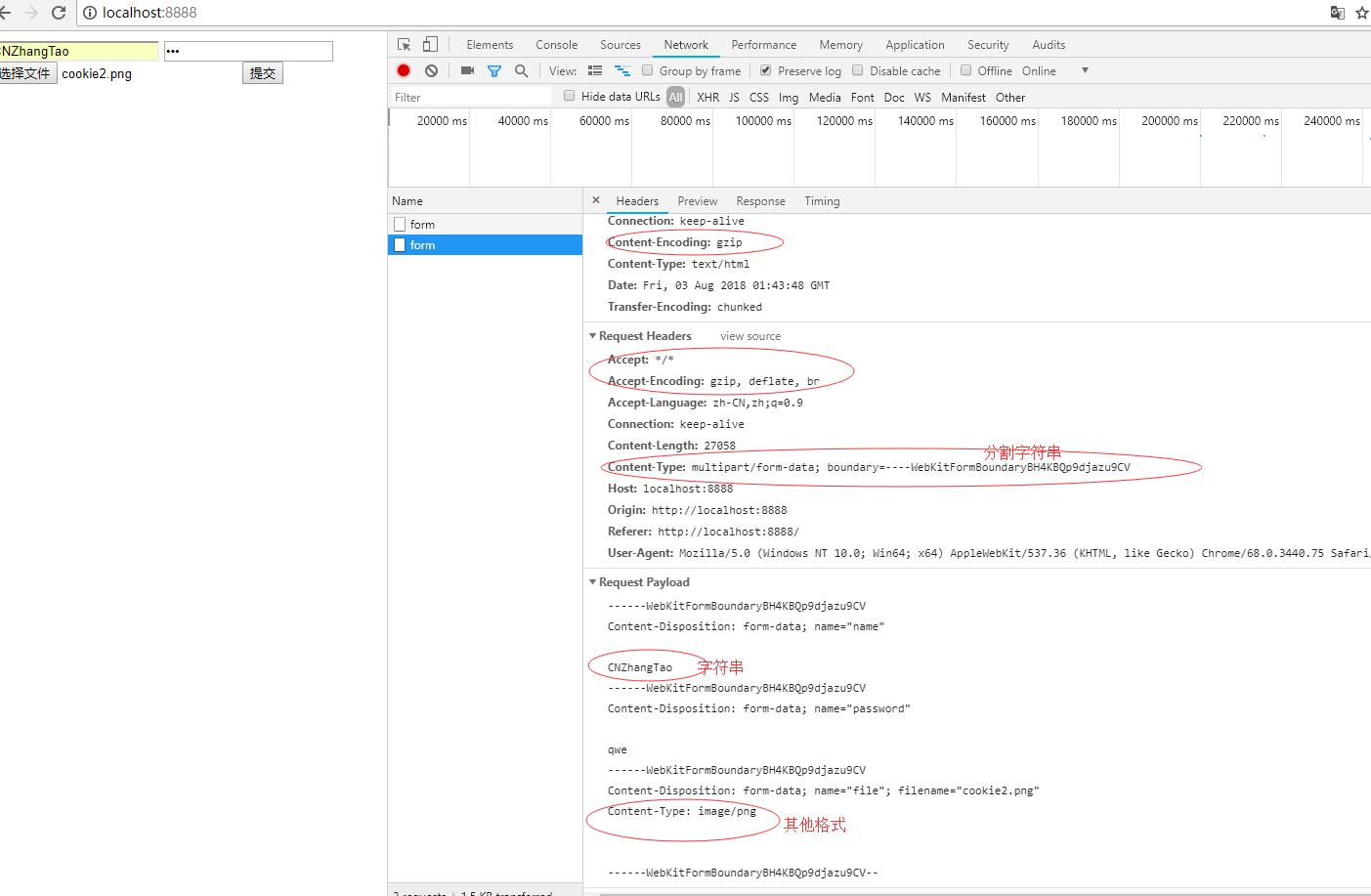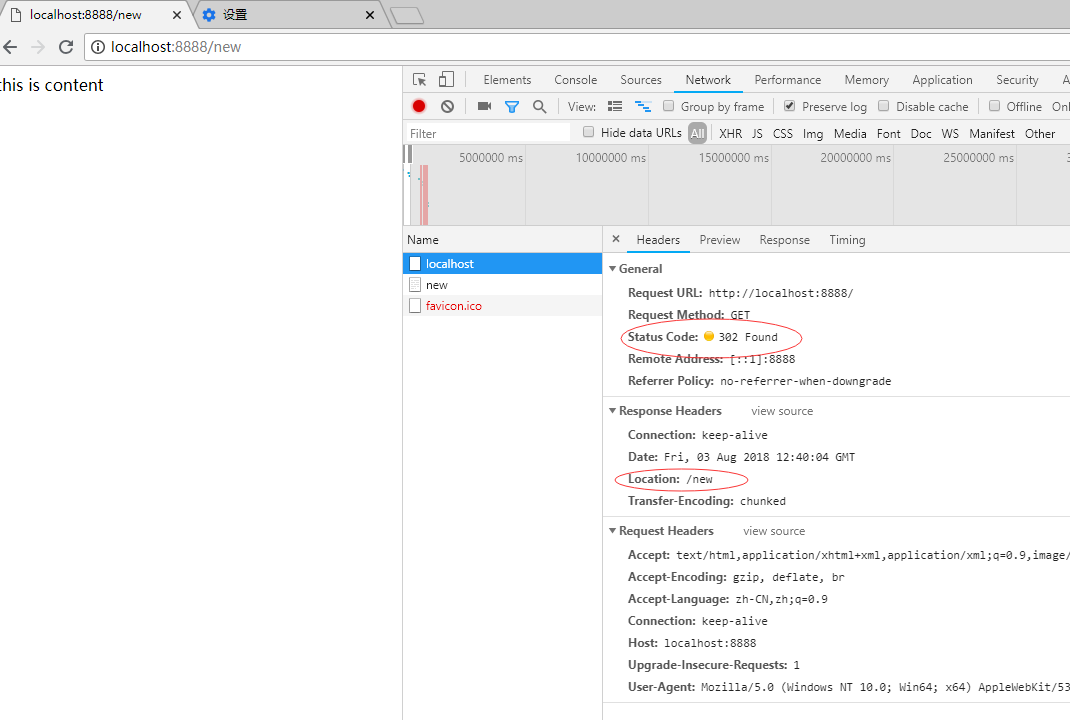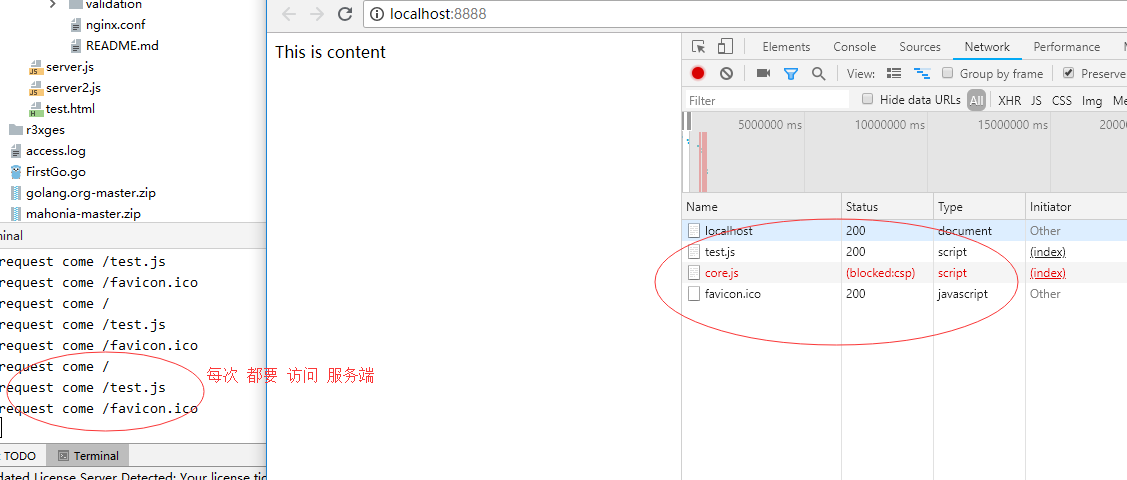HTTP 各种特性应用(三)
一、 数据协商
分类:
客户端请求:
Accept:
Accept:表明 我想要什么样的数据
Accept-Encoding:数据是什么样的编码方式 进行传输。主要限制 服务端怎样进行数据的压缩。
Accept-Language:根据这个 判断 返回的数据是什么语言。
User-Agent:标识浏览器相关的信息。
服务器返回内容:
Content
Content-Type:选择一种返回的数据格式 进行数据返回。
Content-Encoding:服务端 用了什么样的 压缩方式。
Content-Language:判断通过请求返回的什么语言。
server.js 代码
const http = require('http') const fs = require('fs') const zlib = require('zlib') http.createServer(function (request, response) { console.log('request come', request.url) const html = fs.readFileSync('test.html') response.writeHead(200, { 'Content-Type': 'text/html', // 'X-Content-Options': 'nosniff' //告诉浏览器不要随意猜测我返回的数据类型 'Content-Encoding': 'gzip' //压缩方式 }) response.end(zlib.gzipSync(html)) }).listen(8888) console.log('server listening on 8888')
test.html 代码
<!DOCTYPE html> <html lang="en"> <head> <meta charset="UTF-8"> <meta name="viewport" content="width=device-width, initial-scale=1.0"> <meta http-equiv="X-UA-Compatible" content="ie=edge"> <title>Document</title> </head> <body> <form action="/form" id="form" enctype="application/x-www-form-urlencoded"> <input type="text" name="name"> <input type="password" name="password"> <input type="file" name="file"> <input type="submit"> </form> <script> var form = document.getElementById('form') form.addEventListener('submit', function (e) { e.preventDefault() var formData = new FormData(form) fetch('/form', { method: 'POST', body: formData }) }) </script> </body> </html>
请求返回结果:压缩前后

post 数据返回格式:

二、 Redirect
const http = require('http') http.createServer(function (request, response) { console.log('request come', request.url) if (request.url === '/') { response.writeHead(302, { // or 301 慎用 直接访问 /new 302要先经过服务端的一次跳转 才能访问 /new 'Location': '/new' }) response.end() } if (request.url === '/new') { response.writeHead(200, { 'Content-Type': 'text/html', }) response.end('<div>this is content</div>') } }).listen(8888) console.log('server listening on 8888')
访问结果:

三、 CSP Content-Security-Policy 内容安全策略
作用:
限制资源获取
报告资源获取越权
限制方式:
default-src 限制全局
制定资源类型
server.js 代码
const http = require('http') const fs = require('fs') http.createServer(function (request, response) { console.log('request come', request.url) if (request.url === '/') { const html = fs.readFileSync('test.html', 'utf8') response.writeHead(200, { 'Content-Type': 'text/html', // 'Content-Security-Policy': 'script-src \'self\'; form-action \'self\'; report-uri /report' //'script-src \'self\' 只能引用自己的外链 不能引用别的地方的外链 form不能外链 // 'default-src http: https:' 默认 从 http加载js }) response.end(html) } else { response.writeHead(200, { 'Content-Type': 'application/javascript' }) response.end('console.log("loaded script")') } }).listen(8888) console.log('server listening on 8888')
test.html 代码
<!DOCTYPE html> <html lang="en"> <head> <meta charset="UTF-8"> <meta name="viewport" content="width=device-width, initial-scale=1.0"> <meta http-equiv="X-UA-Compatible" content="ie=edge"> <meta http-equiv="Content-Security-Policy" content="script-src 'self'; form-action 'self';"> <title>Document</title> </head> <body> <div>This is content</div> <script> console.log('inline js') </script> <script src="test.js"></script> <script src="https://cdn.bootcss.com/jquery/3.3.1/core.js"></script> </body> </html>
请求返回结果:

分析结果图:

我曾拾到过一束光,日落时还给了夕阳。

